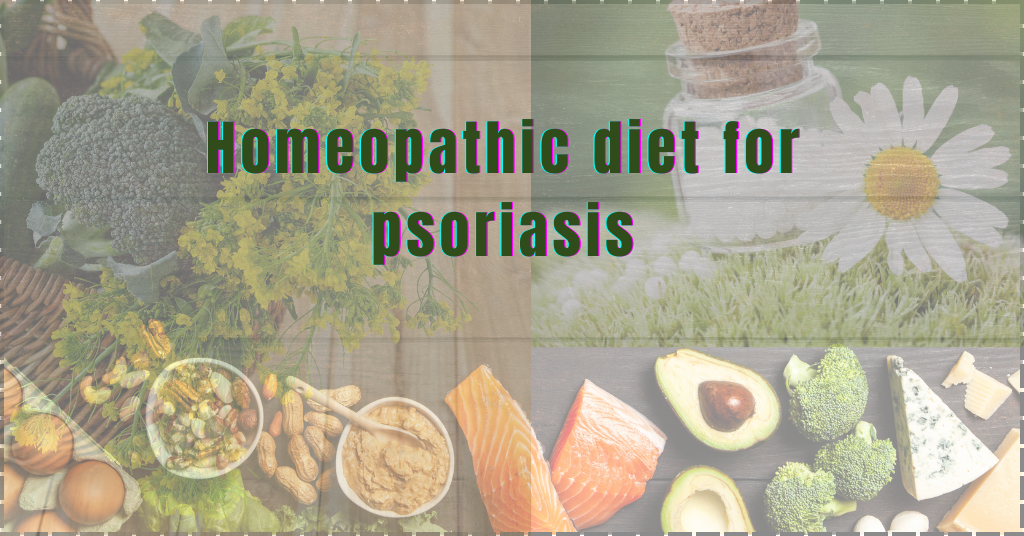Know a little about psoriasis
Psoriasis is a long-term autoimmune skin condition that affects millions of people worldwide. Although its exact cause is still under investigation, it is clear that genetic and environmental factors play an essential role in its development. This causes thick, scaly areas to appear on the skin’s surface. Due to psoriasis, the patient may have to face many problems. The aim of this blog is to shed light on what is better to eat and what not to eat for psoriasis.
How to take care of your eating habits in psoriasis
For some individuals with this disease, certain foods may aggravate their symptoms or make them worse. It is important to note that the effect of food on this condition varies from person to person, and what works for one person may not work for another. However, there are some general dietary considerations. You should know the best diet for psoriasis and how your body reacts to different foods in this condition. Identifying potential trigger foods and developing a customised diet plan can help you prevent psoriasis from worsening.
Some home remedies can be used for psoriasis
Doctors provide the patients with a diet plan according to their needs and symptoms.
Here are some psoriasis home remedy that patients should consider
- Olive oil: It is good for psoriasis patients to use olive oil in cooking. You can also use desi ghee.
- Black Salt: You can use black salt (rock salt) while cooking for the patients.
- Vegetables and green leafy vegetables: Carrot, Beetroots, Radish, Spinach, fenugreek, bathua, coriander, mint, radish leaves
- Turmeric: These can help provide relief from the symptoms of the disease. Curcumin, an active ingredient in turmeric, is responsible for the anti-inflammatory effects of the spice. You can include it in your diet.
- Anti-inflammatory foods:Omega-3 fatty acids: Foods high in these acids, such as flaxseed, salmon, and walnuts, are good for you because they reduce inflammation and shield you against disease-related inflammation.
- Fruit:Antioxidant-rich foods, including blueberries, can improve the general health of your skin. Remember that if you are taking homeopathic psoriasis treatment, you are asked to avoid sour foods, which may negatively affect the homeopathic treatment process, aggravating your illness.
Foods that Trigger psoriasis symptoms
Below are some things to keep in mind about Foods to Eat and Avoid If You Have Psoriasis
- Alcohol: Excessive alcohol consumption can worsen the condition
- Whole grains: These can cause inflammation in your illness.
- Dairy products: Dairy products like milk, curd, and cheese may aggravate your symptoms.
- Processed foods: Sweet and highly processed foods can increase symptoms by causing inflammation.
Fruits and vegetables: These include fruits like oranges and grapes. Due to their sourness, they destroy the effect of medicines. (vegetables) like tomatoes, brinjal, lemon, etc., are prohibited for patients in homeopathic treatment.
Along with a healthy diet, yoga is also beneficial in psoriasis
The patient should take great care of his psoriasis diet because his condition will be aggravated if he includes the wrong foods. Yoga has a very beneficial effect on a patient’s life and can be adopted to reduce the symptoms, along with the best diet plan for psoriasis.
Stress management
Yoga is well known for its stress-reduction benefits. Exercises like deep breathing and meditation are beneficial for stress management.
Advanced adaptability
Some yoga exercises stretch the body. Stretching can help reduce the discomfort and itching associated with the disease. However, patients should avoid yoga and other workouts that result in excessive sweating. One should consult an expert doctor or dermatologist about workout alternatives appropriate for their skin requirements.
Circulation and Elimination:
Specific yoga postures and movements may help people with this condition by increasing circulation and facilitating cleansing.
Relaxation and better sleep:
Doing yoga increases your ability to sleep better, which benefits your overall health and well-being.
Tips for Combining Food and Yoga
Time:
Eat a light meal a few hours before yoga practice to avoid discomfort. Have a nutritious breakfast or meal after yoga. You can have poha, porridge, oats, cheela, idli, sambar, vada, dosa, etc.
Hydration:
Drink plenty of water before, during, and after your yoga session. Water helps flush out toxins from the body and promotes flexibility.
Personalisation:
Both diet and yoga practice may vary from person to person. Consider your personal preferences, needs, and any specific dietary restrictions.
Advice: Talk to a medical expert, especially if you have any dietary restrictions or medical problems that may limit your ability to perform certain yoga poses.
Best Psoriasis treatment by Bharat Homeopathy
If you are suffering from this condition, you should come to Bharat Homeopathy. Here, the patients recovered in a very short time after receiving effective treatment for their condition. Our expert dermatologist works towards understanding your medical history before starting your treatment. If we talk about homeopathic medicines for psoriasis, it is a well-known fact that they are made from natural ingredients which do not have any side effects. The treatment given by the doctors here is the best. Even if your problem is severe and you receive treatment for a long time, the medicines will not adversely affect your body. Along with the medicines, a psoriasis diet chart is also provided to the patient, following which you will see improvement in your symptoms. Doctors monitor you from time to time. And you are given the right advice.


